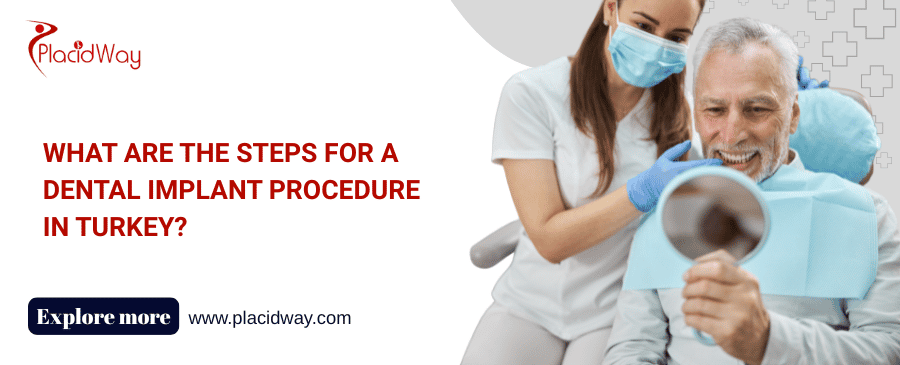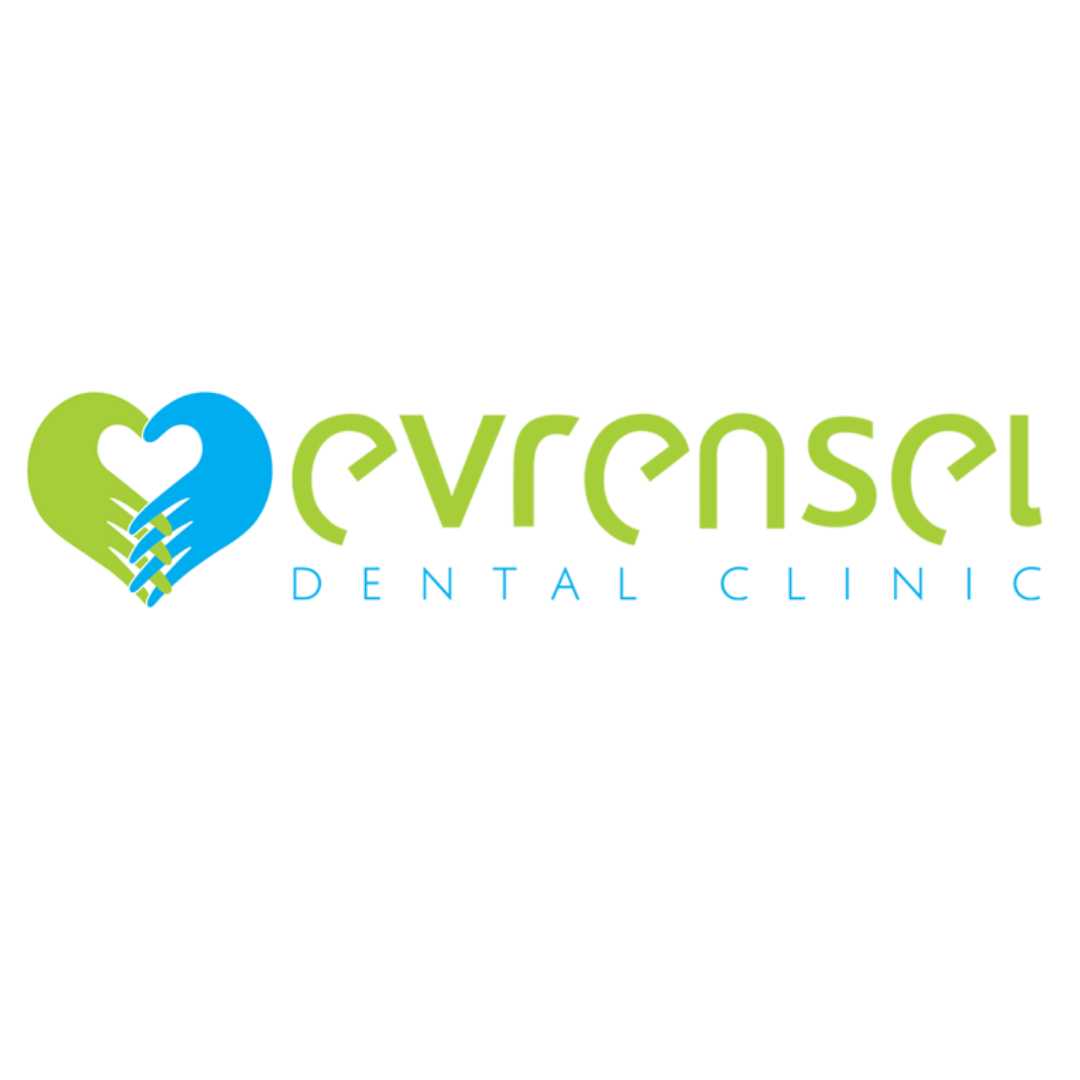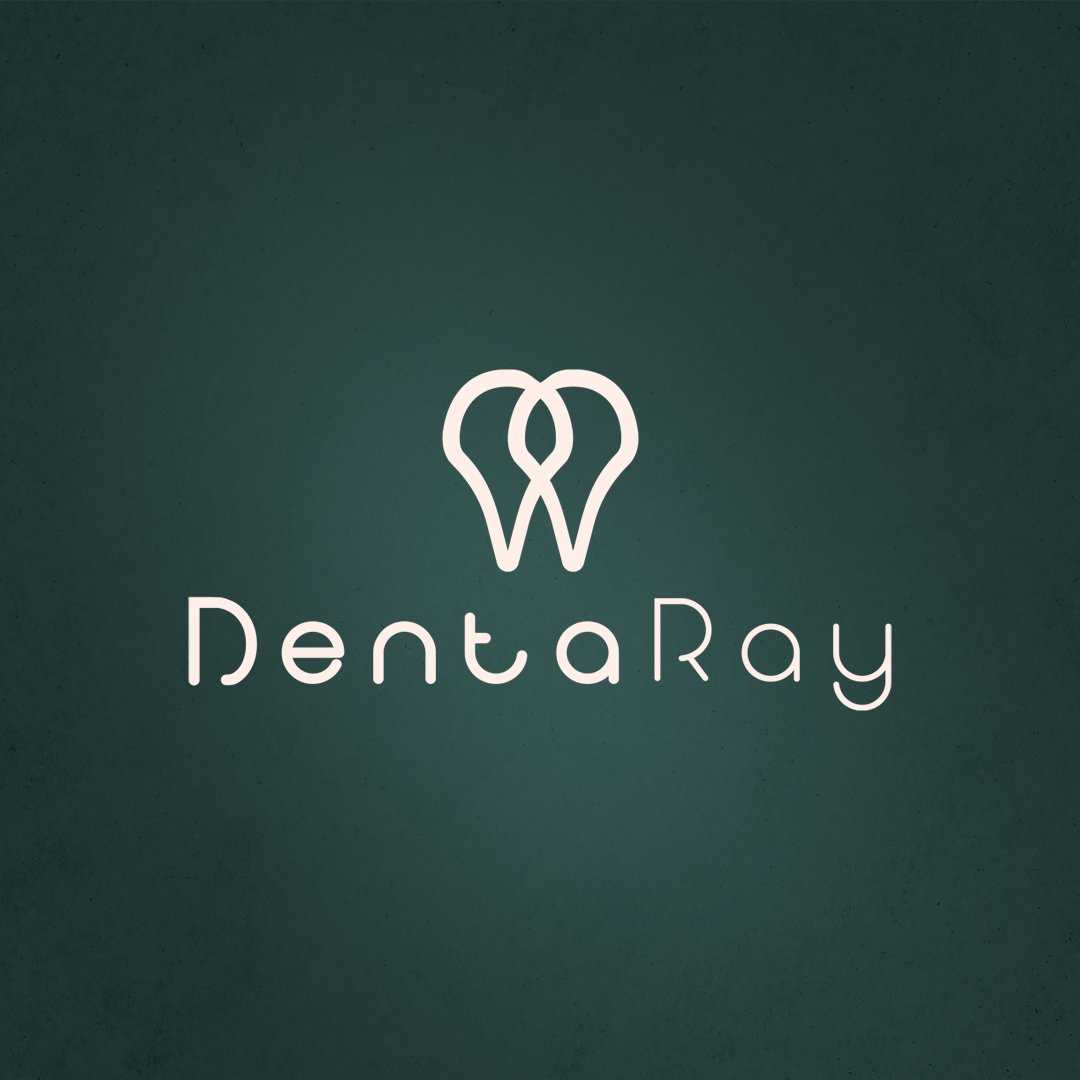Turkey Dental Implant Steps: Your Complete Guide

Are you dreaming of a perfect smile but are concerned about the high costs in your home country? You're not alone. Many people are turning to dental tourism to get high-quality dental work at a fraction of the price, and Turkey has become a leading destination for procedures like dental implants. If you're considering this life-changing treatment, you probably have a lot of questions about how it all works.
This guide will walk you through every step of the dental implant procedure in Turkey, from the first consultation to the final reveal of your new smile. We'll cover everything you need to know to make an informed decision and feel confident about your journey to a healthier, more beautiful smile. The process is more straightforward than you might think, and with the right information, you can be well-prepared for what to expect.
What is a dental implant?
Think of a dental implant as an artificial tooth root. It's a small, biocompatible titanium post that is surgically inserted into your jawbone where a tooth is missing. This post fuses with your natural bone in a process called osseointegration, creating a sturdy and durable base. Once the implant is securely in place, a connector called an abutment is attached, and a custom-made crown is placed on top. The result is a replacement tooth that looks, feels, and functions just like a natural tooth.
Unlike other tooth replacement options like dentures or bridges, dental implants are a long-term solution that helps to preserve jawbone health and prevent bone loss. They don't slip or make noise, and you can eat your favorite foods with confidence. With proper care, dental implants can last a lifetime, making them an excellent investment in your oral health and overall well-being.
Why choose Turkey for dental implants?
Turkey has emerged as a global hub for medical tourism, and for good reason. When it comes to dental implants, the country offers a unique combination of benefits that are hard to beat. The most significant advantage is the cost. You can save up to 70% on dental implants in Turkey compared to the US or UK, without compromising on quality.
Turkish dental clinics are known for their high standards of care, with many being internationally accredited. They are equipped with the latest dental technology, and the dentists are highly skilled and experienced in performing complex procedures. Additionally, the competitive market means that clinics often go the extra mile to provide excellent patient care, including all-inclusive packages that make the entire experience seamless and stress-free.
What are the steps for a dental implant procedure in Turkey?
The dental implant procedure in Turkey is a well-planned process that is typically completed in two visits over a few months. Here's a breakdown of the key steps involved:
- Step 1: Initial Consultation and Treatment Planning: This can often be done remotely. You'll provide your dental records, including X-rays, and the dental team will create a personalized treatment plan for you.
- Step 2: Dental Implant Placement Surgery: During your first visit to Turkey, the titanium implant will be surgically placed into your jawbone. This is a minor surgical procedure performed under local anesthesia.
- Step 3: Osseointegration and Healing Period: After the implant is placed, there is a healing period of 3 to 6 months. During this time, the implant fuses with your jawbone, creating a strong and stable foundation.
- Step 4: Abutment Placement: On your second visit, a small connector called an abutment is attached to the implant. This piece will hold the new crown.
- Step 5: Crown Placement: A custom-made crown, designed to match your natural teeth, is then attached to the abutment, completing the procedure.
Step 1: Initial Consultation and Treatment Planning
Your journey to a new smile begins with a comprehensive consultation. Many Turkish clinics offer free online consultations, allowing you to get a treatment plan and a cost estimate from the comfort of your home. You will be asked to provide your dental history and panoramic X-rays. The dental team will assess the health of your jawbone and gums to ensure you are a good candidate for dental implants.
Based on this evaluation, a detailed treatment plan will be created for you. This plan will outline the number of implants needed, the type of implants to be used, and any additional procedures that may be required, such as bone grafting or a sinus lift. You will also receive a clear breakdown of the costs and the timeline for the entire procedure.
Step 2: Dental Implant Placement Surgery
Once you arrive in Turkey for your first visit, you will have a physical examination and a final confirmation of your treatment plan. The dental implant surgery itself is a relatively quick and straightforward procedure. The area will be numbed with local anesthesia to ensure you are comfortable and don't feel any pain.
The dentist will make a small incision in your gum to expose the jawbone. A special drill is then used to create a space for the implant. The titanium implant is then carefully screwed into place. Finally, the gum is stitched closed over the implant. The entire process for a single implant usually takes about an hour.
Step 3: Osseointegration and Healing Period
After the implant placement, the most crucial phase of the procedure begins: osseointegration. This is the natural process where the titanium implant integrates with the surrounding bone tissue. This fusion is what makes dental implants so strong and durable. The healing period varies from person to person, but it generally takes between 3 to 6 months.
During this time, you will be able to go about your daily life as usual. You will be given a temporary denture or bridge to wear so that you don't have a gap in your smile. It's important to follow the aftercare instructions provided by your dentist to ensure proper healing and the success of the implant.
Step 4: Abutment Placement
After the osseointegration process is complete, you will return to Turkey for your second visit. During this visit, the abutment placement will take place. This is a minor procedure that is also performed under local anesthesia. The dentist will make a small incision in your gum to expose the top of the implant.
The abutment is then attached to the implant. The gum tissue is then closed around the abutment, but not over it. In some cases, the abutment may be placed at the same time as the implant. Your dentist will determine the best approach for your specific situation.
Step 5: Crown Placement
The final step in the dental implant procedure is the placement of your new tooth. After your gums have healed from the abutment placement, an impression of your mouth will be taken. This impression is used to create a custom-made crown that will fit perfectly and match your natural teeth.
Once the crown is ready, it will be securely attached to the abutment. Your dentist will make any necessary adjustments to ensure a comfortable fit and a natural-looking result. You will then be able to leave the clinic with a brand new, fully functional tooth that will restore your smile and your confidence.
How much do dental implants cost in Turkey?
The cost of dental implants in Turkey is significantly lower than in many other countries. This is due to the lower cost of living and operational expenses in Turkey. However, the lower price does not mean a compromise on quality. You can expect to receive world-class treatment with high-quality materials from experienced dentists.
Here is a general price comparison table:
| Procedure | Cost in Turkey | Cost in the US | Cost in the UK |
|---|---|---|---|
| Single Dental Implant | $500 - $1,500 | $3,000 - $6,000 | £2,000 - £4,000 |
| All-on-4 Dental Implants | $5,000 - $8,000 | $20,000 - $30,000 | £15,000 - £25,000 |
| Full Mouth Dental Implants | $7,000 - $12,000 | $40,000 - $90,000 | £25,000 - £50,000 |
Are dental implants in Turkey safe?
Safety is a top priority for reputable dental clinics in Turkey. The country's healthcare system is well-regulated, and many clinics have international accreditations, such as from the Joint Commission International (JCI). This means they follow the same high standards of care and hygiene as clinics in the US and Europe.
The dentists in Turkey are highly trained and often have international experience. They use state-of-the-art technology and high-quality, FDA-approved implant brands. By doing your research and choosing a reputable clinic, you can be confident that you will receive safe and effective treatment.
What are the success rates of dental implants in Turkey?
The success of a dental implant depends on several factors, including the patient's overall health, the skill of the dentist, and the quality of the materials used. Reputable clinics in Turkey boast success rates of over 95%, which is on par with the best clinics worldwide. This high success rate is a testament to the expertise of Turkish dentists and their commitment to using the latest technology and techniques.
To ensure the long-term success of your implant, it's crucial to follow the aftercare instructions provided by your dentist. This includes maintaining good oral hygiene and attending regular check-ups.
How long does the entire dental implant process take in Turkey?
The timeline for the dental implant procedure in Turkey can vary depending on your individual needs. However, a typical timeline involves two separate trips to Turkey. Your first visit will be for the implant surgery, and you'll usually need to stay for 3 to 5 days. This allows for the initial consultation, the surgery, and a post-operative check-up.
After your first visit, you will return home for the healing period of 3 to 6 months. Your second visit will be for the abutment and crown placement, and you'll typically need to stay for 5 to 7 days. This allows for the abutment placement, the creation of your custom crown, and the final fitting.
What should I expect during the initial consultation in Turkey?
The initial consultation is a crucial step in the process. It's an opportunity for you to meet the dental team, ask any questions you may have, and get a clear understanding of your treatment plan. The dentist will perform a thorough examination of your mouth, which may include taking new X-rays or a 3D CT scan. This will allow them to assess the density and quality of your jawbone and determine the best placement for the implant.
The dentist will then discuss their findings with you and present you with a personalized treatment plan. This is your chance to discuss your goals and expectations and to make sure you are comfortable with the proposed plan before moving forward.
Is the dental implant procedure in Turkey painful?
One of the most common concerns about dental implant surgery is the potential for pain. The good news is that the procedure is performed under local anesthesia, so you won't feel any pain during the surgery. You may feel some pressure, but it should not be uncomfortable.
After the anesthesia wears off, it's normal to experience some discomfort, swelling, and bruising. However, this is usually mild and can be effectively managed with over-the-counter pain relievers and by following the aftercare instructions provided by your dentist. Most patients report that the discomfort is less than they expected and that they are able to return to their normal activities within a few days.
What type of anesthesia is used for dental implant surgery?
For most dental implant procedures, local anesthesia is sufficient to ensure a painless experience. The anesthetic is injected into the gum tissue around the implant site, completely numbing the area. You will be awake and aware during the procedure, but you will not feel any pain.
For patients who experience dental anxiety or are undergoing a longer or more complex procedure, such as a full mouth reconstruction, sedation dentistry may be an option. This can range from mild sedation, where you are relaxed but still conscious, to general anesthesia, where you are completely asleep. Your dentist will discuss the best anesthesia option for you during your consultation.
What is the recovery and healing time for dental implants in Turkey?
The recovery from dental implant surgery is a two-part process. The initial healing of the gums and surrounding tissues takes about one to two weeks. During this time, you may experience some swelling, bruising, and minor discomfort. It's important to rest and follow a soft food diet to allow the area to heal properly.
The second part of the healing process is osseointegration, which is the fusion of the implant with the jawbone. This is a longer process that takes 3 to 6 months. During this time, you won't feel any pain, and you'll be able to wear a temporary restoration. Once osseointegration is complete, the implant will be strong and stable enough to support the final crown.
What can I eat after dental implant surgery?
Your diet plays an important role in your recovery after dental implant surgery. For the first few days, it's best to eat soft, nutritious foods that don't require much chewing. This will help to prevent irritation to the surgical site and promote healing. Some good options include:
- Soups and broths
- Yogurt and smoothies
- Mashed potatoes and other soft vegetables
- Scrambled eggs
- Oatmeal and other soft cereals
You should avoid hard, crunchy, or sticky foods, as well as hot and spicy foods, as these can irritate the surgical site. As you heal, you can gradually reintroduce harder foods into your diet.
What are the aftercare instructions for dental implants?
Proper aftercare is essential for the long-term success of your dental implants. Your dentist will provide you with detailed instructions, but here are some general guidelines:
- Oral Hygiene: Keep the surgical site clean by gently rinsing your mouth with a warm saltwater solution several times a day. You can brush your other teeth as normal, but be careful to avoid the implant area for the first few days.
- Rest: Get plenty of rest and avoid strenuous activities for the first 48 hours after surgery.
- Diet: Stick to a soft food diet for the first few days.
- Smoking: Avoid smoking, as it can interfere with the healing process and increase the risk of implant failure.
- Follow-up: Attend all of your scheduled follow-up appointments so that your dentist can monitor your healing progress.
How long do dental implants from Turkey last?
Dental implants are designed to be a permanent solution for missing teeth. The titanium implant itself can last a lifetime, as it is made from a biocompatible material that is resistant to decay. The success of the implant depends on good oral hygiene and regular dental check-ups.
The crown, which is the visible part of the tooth, is also very durable, but it may need to be replaced after 10 to 15 years due to normal wear and tear. By taking good care of your implant, you can enjoy a beautiful and functional smile for many years to come.
What are the different types of dental implants available in Turkey?
There are several different types of dental implants available, and your dentist will recommend the best option for you based on your individual needs. Some of the most common types include:
- Traditional Implants: These are the most common type of implant and involve a two-stage process with a healing period in between.
- Immediate Load Implants: Also known as "same-day implants," these allow for the placement of a temporary crown on the same day as the implant surgery.
- All-on-4 or All-on-6 Implants: These are used for full mouth restoration and involve placing four or six implants to support a full arch of teeth.
What if I have bone loss in my jaw?
Jawbone density is a crucial factor for the success of dental implants. If you have been missing teeth for a long time, you may have experienced some bone loss. However, this does not necessarily mean that you cannot get dental implants. There are several procedures that can be performed to augment the bone in your jaw and create a solid foundation for the implant.
A bone graft is a procedure where bone is taken from another part of your body or from a donor source and is added to your jawbone. A sinus lift is a similar procedure that is used to add bone to the upper jaw in the area of the molars and premolars. Your dentist will determine if you need one of these procedures during your initial consultation.
Can I get a full mouth of dental implants in Turkey?
If you are missing all or most of your teeth, a full mouth of dental implants can be a life-changing solution. This procedure involves placing a series of implants in your upper and lower jaws to support a full set of new teeth. The All-on-4 and All-on-6 implant systems are popular options for full mouth restoration, as they provide a stable and durable foundation for a full arch of teeth with a minimal number of implants.
Getting a full mouth of dental implants in Turkey is a cost-effective way to restore your smile and improve your quality of life. You will be able to eat, speak, and smile with confidence again.
How do I choose the best dental clinic in Turkey?
With so many dental clinics in Turkey, it's important to do your research to find the best one for you. Here are some tips for choosing a reputable clinic:
- Check Credentials: Look for clinics that are internationally accredited and have dentists with extensive experience and qualifications.
- Read Reviews: Read reviews from previous patients to get an idea of their experiences.
- View Before-and-After Photos: This will give you a good indication of the quality of the clinic's work.
- Have a Consultation: Schedule a consultation with the dentist to discuss your treatment plan and to make sure you feel comfortable with them.
Ready to take the next step towards a new smile? Explore your options with PlacidWay. We can help you find the best dental clinics in Turkey and guide you through every step of your medical tourism journey. Contact us today for a free consultation!


.png)




.png)
.png)
.png)




.png)


Share this listing